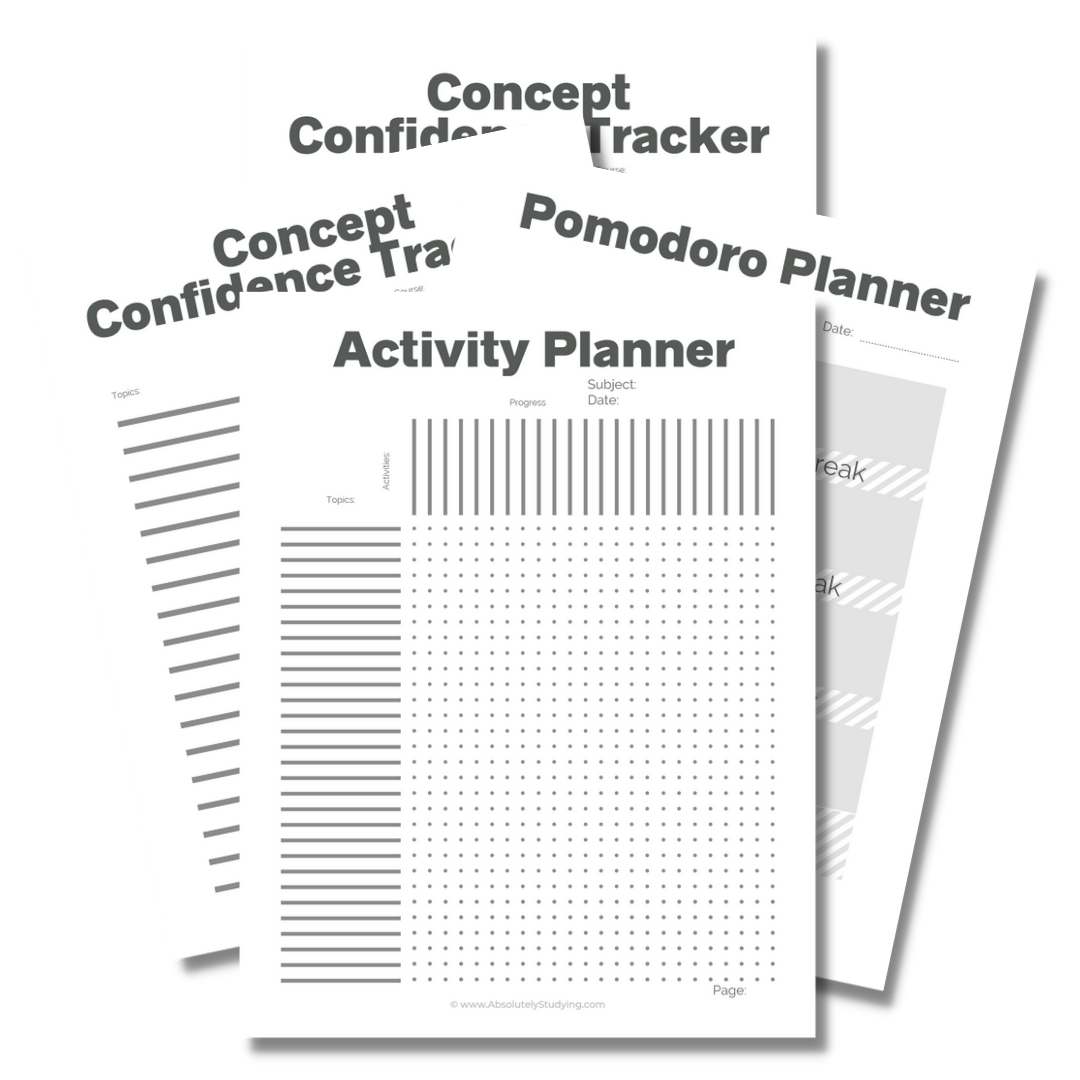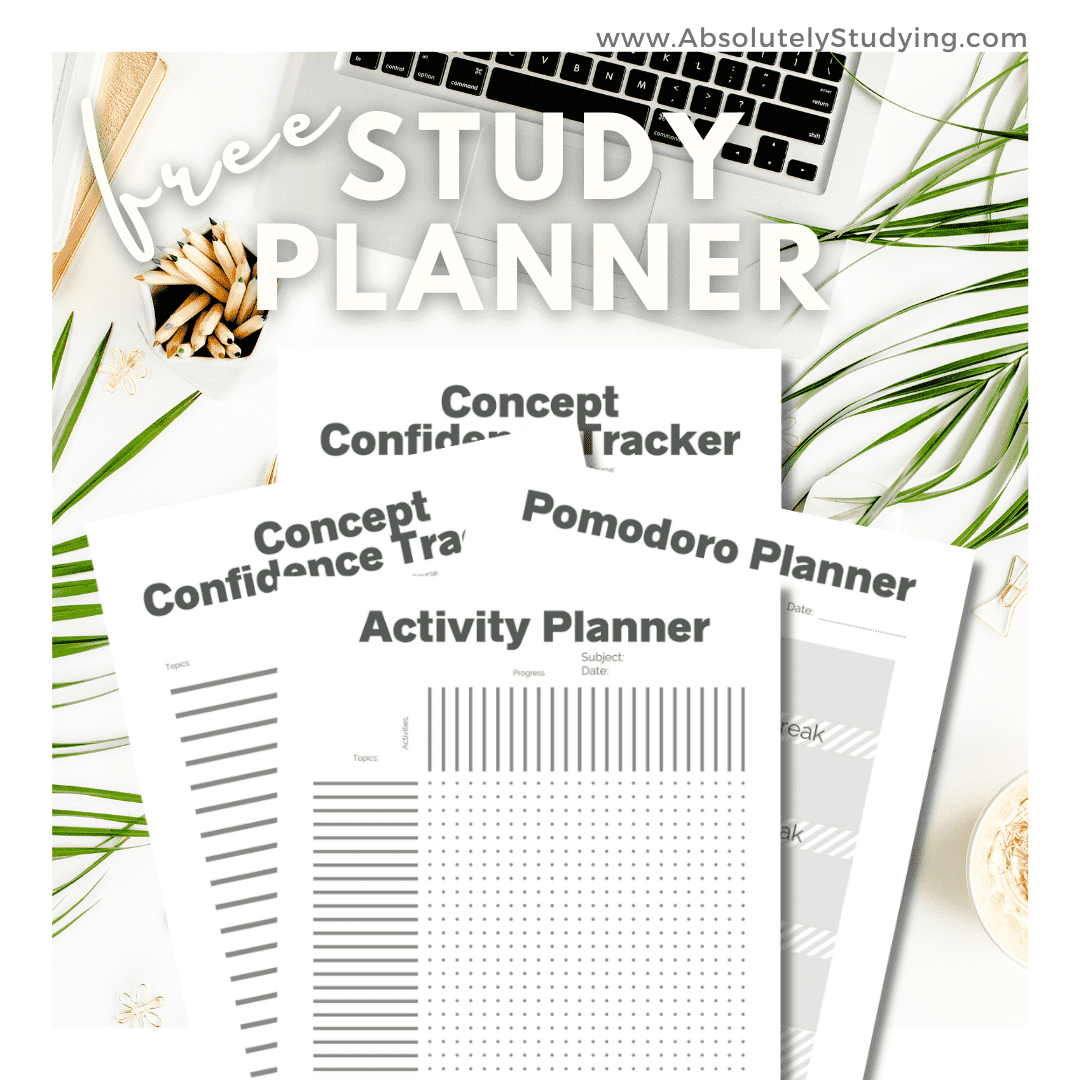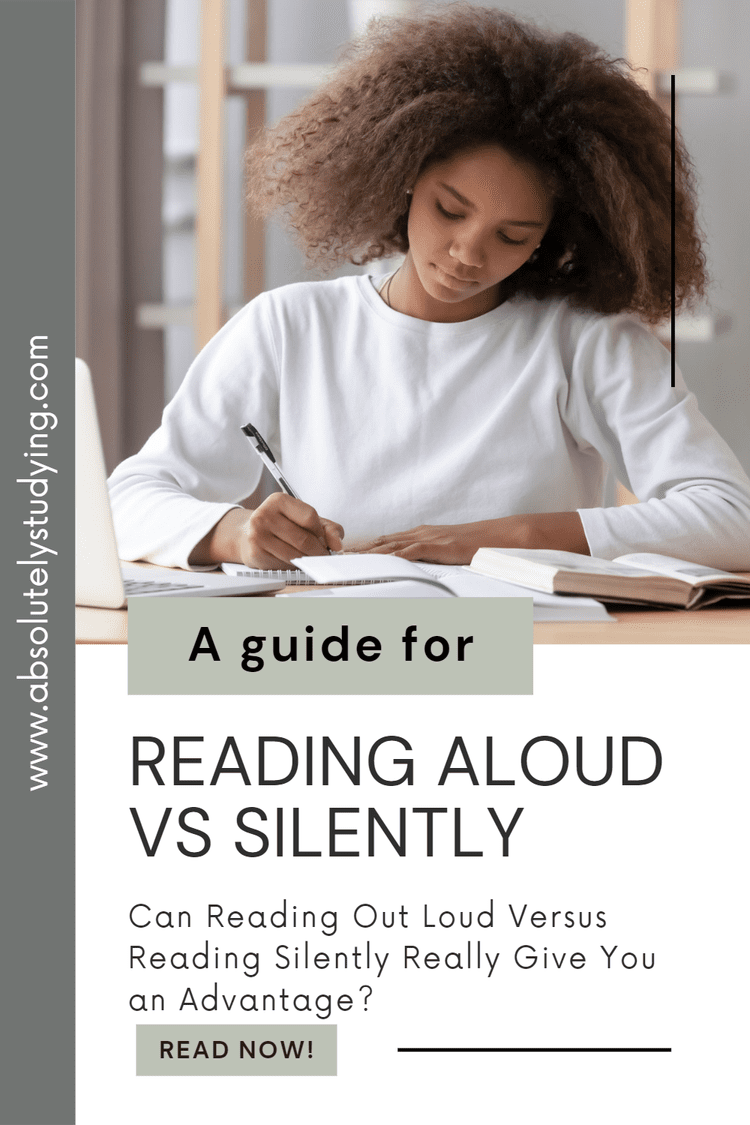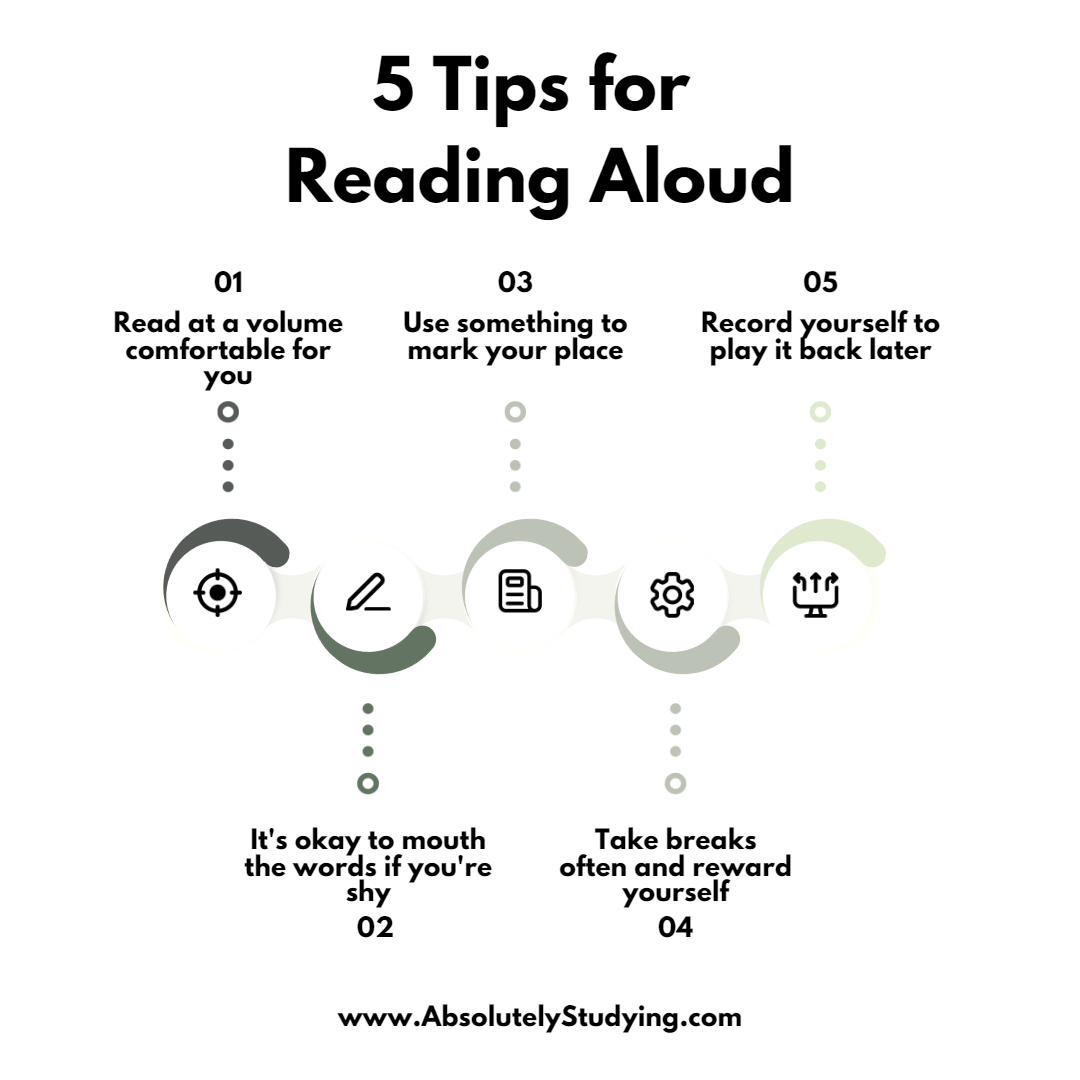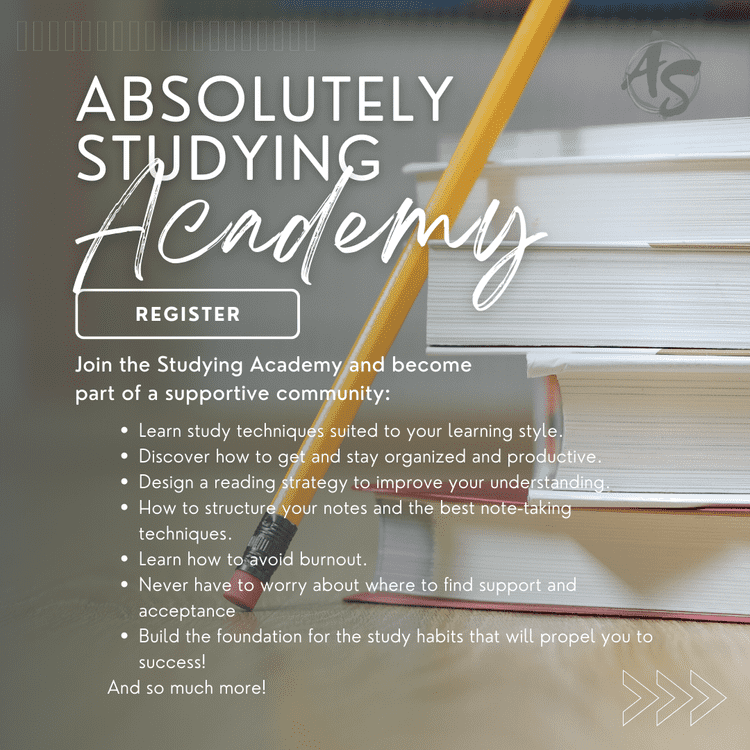The Hidden Benefits of Reading Out Loud You Need to Know
The Hidden Benefits of Reading Out Loud You Need to Know
Is reading out loud better for learning?
Everything you need for the semester you want!
This bundle includes:
The Syllabus Study Planner
The Pomodoro Planner
A Confidence Tracker
A Q&A planner
The “Get Organized Checklist”
and more!
This workbook is full of super useful resources that can be applied to every aspect of your day.
* Disclaimer * Some of the posted links are affiliate programs. By clicking these links, I may receive monetary compensation. This will not alter the price or change the buyer's experience.
One of the most crucial study activities you can do is to simply read your textbook. Reading your text reinforces the information from the course. It’s also a resource you can fall back on outside of class time when the teacher is unavailable.
The biggest obstacle to reading the textbook is almost always time. Your workload is often so heavy that adding another task seems unreasonable. Because of this, you want to ensure that each reading session is as effective as possible so you can pull as much information as you can from the textbook. So, are your reading sessions really as efficient as they could be?
When you read your textbook, do you read aloud or in your head? Does it even matter?
Is it better to read out loud or silently? Have you ever actually considered this? Most of us read silently in our heads as we go through our textbooks. This is just our natural way of taking in information. It’s often not even a conscious thought since we silently read everything from the newspaper to a novel.
While studying, I often stop and re-read confusing passages several times. I will read it aloud if I still don’t quite understand it after the second read. I never really considered this an explicit study tactic, but somehow, reading the paragraph out loud brings it all together for me. It’s like a light turns on, and the answer is illuminated before me. Do you do the same thing? So why does this happen?
Reading aloud is a tendency of mine that predates the writing of this article. As long as I can remember, this is what I did. Maybe it dates back to when I was learning to read and encountered a difficult word. I was taught to sound it out.
Sounding it out can sometimes help you to realize what the word reminds you of. This leads you to figure out what it could be, then wrap it up in context to figure out what it actually is. While this is a bit of a drawn-out process, it works!
I still do this with the new words I come across. I didn’t really consider it a study tip. I just did it, like muscle memory. There was never much forethought or planning behind it. Do you really think that something as simple as reading aloud instead of silently in your head can help with comprehension and, thus, studying?
DOWNLOAD NOW: FREE STUDY PLANNER & ACTIVITY TRACKER
Download your free study planner and activity tracker.
Everything you need for the semester you want!
The Hidden Benefits of Reading Out Loud You Need to Know
Studies have shown that the benefits of reading out loud are clear. This is especially true when it comes to studying things like flash cards. The theory is that the more pathways you use to link to the information, the easier it is to retrieve it. These links to the material are called mental associations.
One way to increase these pathways is by elaboration. Another way to create more mental associations is by including more senses and study activities. Each new association you make to the material is an additional link. When it is time to retrieve the data, any of these pathways can lead you to it. This means that the more pathways or cues to any piece of information, the easier and faster it is to recall.
What is elaboration, and how does it help you remember?
Elaboration is when you deepen your understanding of a topic by learning more about it. This is not only referring to foundational areas but also more tiny details concerning that concept and how it can be applied in various situations.
Elaborating on a piece of information means learning more specifics about it. It can also mean discovering interesting facts that link to other knowledge, creating more cues to connect it. The more in-depth your understanding of a subject, the less likely you will forget it. That is simply because, to forget it, you would have to forget not only that piece of information but also all of the surrounding details you’ve learned. Due to the sheer number of pieces of data, you’re less likely to misplace them in your memory. Remember, any of these cues will lead to others you’ve linked.
How do your senses influence your memory?
A second way to create additional mental associations is by incorporating more of your senses. If you can link the information you are trying to learn to an image, a sound or even a smell, you can also use these cues to trigger the recall of that piece of data. Reading a chapter in your textbook is a good study tip but saying the words out loud as you read them is excellent practice. Reading aloud is the perfect example of this.
The more pathways you build to a piece of information, the easier it is to retrieve it. These memory cues don’t have to rely solely on how many pieces of information are linked to that concept. They can also be related to how many senses you use to learn it. This is often why learning by actually doing something is much more effective than simply learning by re-reading. You’re just taking it in with your eyes when you read silently. When physically doing something, your whole body is involved in this process, amplifying the connection to the information.
On the surface, it seems like reading out loud as a study strategy is just too simple, but you’re mistaken. Reading aloud is far more involved than reading silently.
Reading in your head is the first link,
followed by moving your lips,
hearing the word,
and finally, processing the sound of the words.
This adds four extra links to the reading alone. This strategy could also build more with environmental associations, imagining the page’s contents, and passively linking to previous knowledge.
How do mental associations help with recall?
You can think of your brain as a big bin of random facts. Information is not stored neatly on shelves like the books of a library. Pieces of information are strewn about haphazardly. They are not contained within your head in a definite order.
Some information is stored together, but other data might have weeks or months pass between initial discovery and elaboration. If you cannot find where in the bin you put the data, it might as well be lost forever.
You learn new information daily, and your brain does not necessarily immediately link all the pieces together to be stored in sequential order. Neurons just don’t work that way. Without building a pathway to what you want to remember, it’s lost indefinitely. Reinforcing these pathways is the key to improving your memory.
What is follower reading, and why should It be avoided?
Follower reading is when someone else reads, and you simply follow along in your own book. This practice has been shown to actually inhibit understanding. Researchers have hypothesized that it could be that pathways are not being reinforced or the pace of reading is set by an outside force.
Unless you are highly skewed towards the auditory learning style, this strategy could be quite detrimental. Because you are not taking in the information on your own, your brain is not processing it. Follower reading is much like sitting in a lecture and not taking notes. While you may remember bits and pieces of the information, most of it will likely be simply lost as your brain will not retain it in the first place.
On the surface, it seems like a fun study group activity with the possibility to trigger many pathways; however, this is a facade. This method shows negative benefits and should, as such, be avoided during study time. If you are looking for interactive study group activities, try some flashcards!
Other Benefits of reading out loud
Reading out loud has benefits outside of fortifying memory. It also helps to build confidence, fluidity, spelling, and pronunciation. This is most likely the reason we were forced to endure this exercise in grade school and not for the actual accumulation of knowledge or understanding. The benefits of reading out loud have impacts that reach far beyond the classroom. The payoff may be worth much more than the stares brought on by muttering to yourself in a corner.
Tips for reading out loud
Reading aloud is a simple addition to your study session that can help you reap many benefits. If you want to start incorporating this activity into your study sessions, I have a few tips for you to make the transition easier.
Read at a volume that’s comfortable for you.
You don’t need to speak loudly at all. No one needs to be able to hear what you’re saying except for you. If you feel more comfortable reading aloud in a whisper, go right ahead.
This is strictly an exercise for your senses. To experience what you were learning on more than one level. Saying the word, moving your lips, and hearing the sounds each add extra layers and do not necessarily benefit from increased volume.
If you’re in a public place, it’s okay to just mouth the words.
While this strategy is not quite as effective as reading aloud, mouthing the words as you read can still add some benefit. This gives you an extra layer even though you can’t hear yourself. But if you’re in a public place and don’t want anyone to know what you’re saying, and you’re too shy to even whisper, mouthing the words can still give you a little bit more added benefit in a bind.
Use your finger or a ruler to mark your place in the textbook as you go.
I often lose my spot as I read. Using my finger or a ruler to block out the lower line helps me stay focussed on what I’m reading. Sometimes I tend to skip ahead of the line I’m reading, which can confuse me. It can also distract me, causing me to lose my train of thought. Using something to mark my place in the book as I go helps me to stay focused and concentrate on what I am reading. This allows me to take it in and retain it a little bit better.
Take breaks often and reward yourself at each milestone.
Taking frequent breaks helps to keep you refreshed, especially when reading a technical textbook. These textbooks are written to relay information, not grip the reader’s attention. Because of this, they can be pretty dry and dull. It’s easy for your mind to wander off and think of more exciting things. By taking frequent breaks, you have a chance to take a rest and give yourself the resources and capacity to stay focused.
Rewarding yourself as you go will also give you something to look forward to. As you progress, you will feel motivated to continue knowing you get a perk at the end of the task. These don’t have to be big rewards. Space out your refills or snacks with the chapter headings, and reward yourself with a refill or a bite to eat each time you complete a milestone.
Record yourself reading your notes, then play them back as a study refresher while you run errands or do chores.
One of my favourite things to do when I feel restless is to listen to study material while I tackle chores. I feel much more productive even if I’m not taking in 100% of the information. Sometimes my to-do list is just too long, but I know I have to squeeze in a study session. Listening to notes I have read out loud or watching a tutorial as I wash dishes can help me multitask productively. This is obviously not an everyday solution for study sessions, but if you cannot bear to sit still and have lots to do, this can be a nice compromise.
Take it one step further and teach someone.
Discussing or teaching the information to another person would be even more beneficial than simply reading aloud. This is because it adds an additional sensory-motor link. If you have someone willing, try reading it to them. Afterwards, break it down and explain it to them. Let them ask questions and discuss the topic. This would work well, especially if the other person knows nothing about the subject, because they will want you to go into great detail.
Before we get too far ahead, it’s essential to note that these benefits are assists, not goals. Reading out loud, though helpful, will not bring home an excellent grade on its own. I can not emphasize enough that this is just one piece of the puzzle.
It’s vital to collect and put together as many pieces as you can gather. Incorporating several simple study strategies and exercises will accumulate to increase your grade. Too often, we look for a magical quick fix to get the grades we want without putting in the effort. Work is always required. However, optimizing how you execute the tasks you are already required to perform will push you closer to your goals with less effort.
Join the Absolutely Studying Academy!
Understanding whether you should read out loud or silently, is just one piece of the puzzle when it comes to effective studying. To fully optimize your study sessions and achieve academic success, try joining the Absolutely Studying Academy. Our academy provides comprehensive resources, expert guidance, and a supportive community to help you excel in your studies.
The Absolutely Studying Academy
Join our Study and Accountability Community!
What’s Included in the Academy:
Comprehensive Study Skills Courses: Access a range of courses designed to enhance your study techniques, time management, and organizational skills.
Interactive Learning Modules: Engage with interactive modules that delve into various study strategies, including the benefits of reading out loud, creating study plans, and more.
Goal Setting and Achievement: Discover how to set realistic academic goals and develop actionable plans to achieve them.
Community Support: Join a community of like-minded students who share your academic journey. Participate in forums, group study sessions, and peer support activities.
Why Choose Absolutely Studying Academy?
The Absolutely Studying Academy is more than just a collection of courses. It's a comprehensive support system designed to help you excel in your studies while taking care of your mental and emotional well-being. Each course and resource is crafted to provide you with practical, actionable strategies that can be implemented immediately.
Understanding how to optimize your study habits, including whether to read out loud or silently, is crucial for academic success. Our academy helps you integrate effective study practices into your daily routine, ensuring you stay motivated, focused, and balanced.
Join the Absolutely Studying Academy to invest in your academic success and well-being. You'll gain access to a wealth of resources, expert guidance, and a supportive community that will help you achieve your goals and maintain a healthy balance.
Take control of your academic journey and unlock your full potential with the Absolutely Studying Academy. Embrace the benefits of effective study strategies and excel in your studies with our comprehensive support system.
Creating a study guide is tough, and planning activities can be exhausting. If you struggle to plan study sessions that have an impact pick up my free study guide template and activity tracker. It has more than 20 study activities that you can track to ensure you understand each concept. Use the planners and templates to guide you as you progress throughout the semester. This printable comes with 8 pages, and it’s yours for free to download here.
I would like to be transparent so that there are no misunderstandings. As an affiliate, I may earn a small commission from any products linked in this post. This is not a sponsored post, and I was not asked to recommend these products. These are products that I genuinely love and want to share with my audience.

